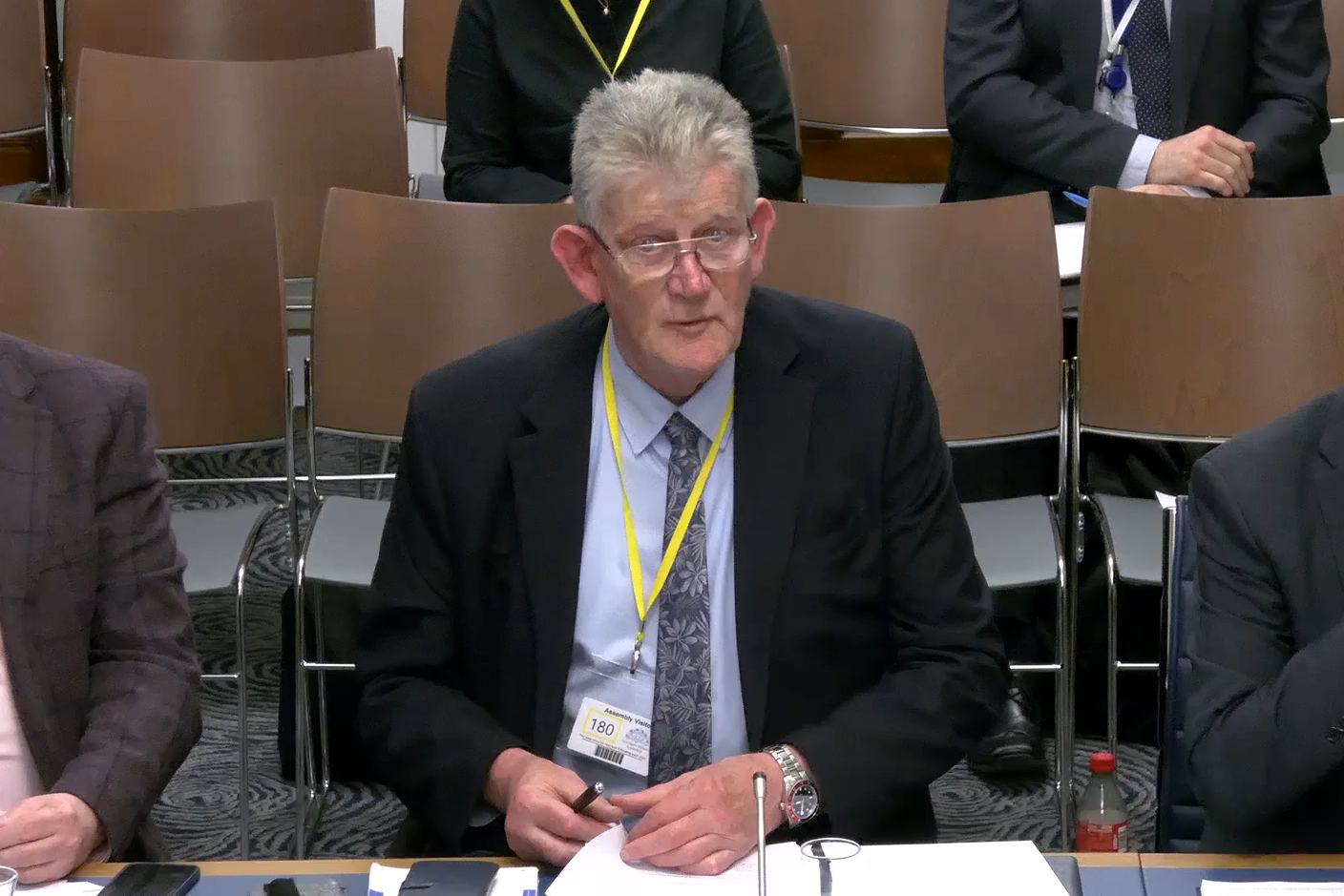‘Time running out’ to press institutions to contribute to redress fund
The Stormont Executive committee also heard concerns that not all victims and survivors may know about the fund.

Your support helps us to tell the story
From reproductive rights to climate change to Big Tech, The Independent is on the ground when the story is developing. Whether it's investigating the financials of Elon Musk's pro-Trump PAC or producing our latest documentary, 'The A Word', which shines a light on the American women fighting for reproductive rights, we know how important it is to parse out the facts from the messaging.
At such a critical moment in US history, we need reporters on the ground. Your donation allows us to keep sending journalists to speak to both sides of the story.
The Independent is trusted by Americans across the entire political spectrum. And unlike many other quality news outlets, we choose not to lock Americans out of our reporting and analysis with paywalls. We believe quality journalism should be available to everyone, paid for by those who can afford it.
Your support makes all the difference.Stormont has been urged to place a legal obligation on institutions to contribute to a redress fund for abuse survivors.
Concern was also voiced that scores of people who suffered abuse at institutions in Northern Ireland are still not aware of the redress scheme for which the deadline for applications is April 2.
The compensation scheme for victims and survivors was set up in 2019 following a recommendation of the Historical Institutional Abuse Inquiry public which issued its final report in 2017.
The inquiry, led by Sir Anthony Hart, revealed the extent of sexual, physical and emotional abuse at homes run by the state, church and charities from 1922 to 1995.
Jon McCourt of the group Survivors North West said they are running out of time on the redress process.
He appeared before the Stormont Executive Committee on Wednesday afternoon along with Cyril Glass of Survivors Together and Gerry McCann of Rosetta Trust.
The three men had met with First Minister Michelle O’Neill and deputy First Minister Emma Little-Pengelly earlier that day.
Mr McCourt said they discussed the redress as well as a plan to create a memorial to victims of historic institutional abuse.
Some £100 million in payments have so far been paid to victims of the abuse.
Appearing before the committee, Mr McCourt said he is concerned that so far only three of the institutions have made an interim payment towards the cost of redress.
He said the religious institutions should “do the honourable thing” and make a pro rata contribution in Northern Ireland to what they did in the Republic of Ireland to be reviewed annually to meet the need of a fund for specialist services for victims and survivors of historic institutional abuse.
He also called for the Historical Institutional Abuse Act 2019 to be amended to make their contributions to redress from a recommendation to a legal obligation.
“Dealing with this tragic episode in our history has taken a toll on all of us, not just on victims and survivors of historical institutional abuse but on our families, our friends and our loved ones,” he told MLAs.
“I have seen over the years the toll it has taken on them, but I have also seen the toll it has taken on members of this committee and other legislators across the political spectrum in the Assembly and the Executive Office staff who have worked diligently for every gain we have made on this journey.
“In November 2008 when we first came to meet with the then First and deputy First Ministers, Peter Robinson and the late Martin McGuinness seeking an inquiry into historical institutional abuse, their parting words gave us real hope, and those parting six words were, ‘we will not let you down’.
“I ask you now, on behalf of all victims and survivors of historic institutional abuse to live up to that promise and don’t let us down.”
Meanwhile, the committee also heard that plans for a memorial for victims remain under consideration.
Mr McCann said a previous plan for a memorial bench has been set aside.
A steering group is set to be formed to allow victims and survivors to decide on what form the memorial, which will be located at Stormont and/or in the grounds, will take.
“We think this is the best way forward, that survivors will be involved in this process rather than officials,” he said.